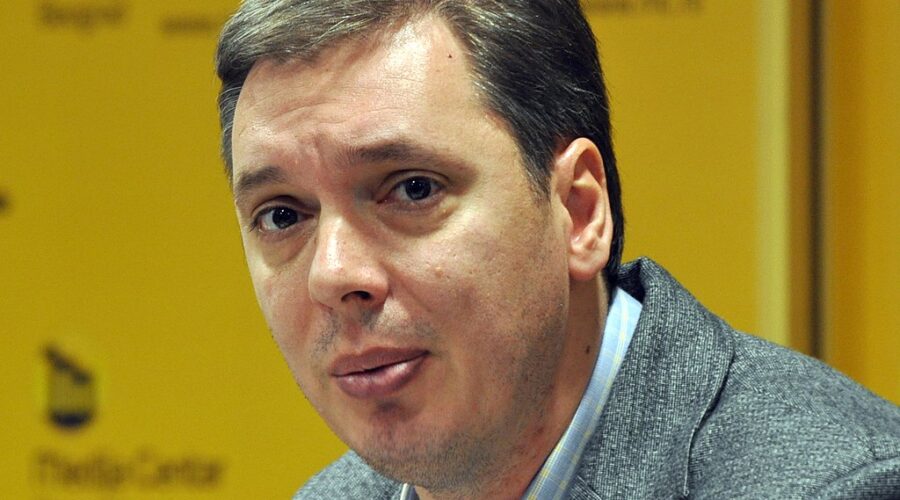The West is reportedly pressuring Serbia to implicitly recognize Kosovo – the southeastern European nation’s breakaway province that unilaterally declared independence in 2008. The European Union’s and the United States’ representatives continue to intensify their efforts to help find a solution to the Serbia-Kosovo dispute, while Belgrade claims that the Western powers have issued an ultimatum to the Balkan country. If true, how will Serbia respond?
According to the Serbian President Aleksandar Vucic, the West is trying to “hide its mistakes and criminal activities by forcing Belgrade to make decisions that will abolish them.” He was referring to the 1999 NATO bombing of Serbia that resulted in the withdrawal of the Serbian police and army from Kosovo. In June 1999, NATO troops entered Serbia’s southern province in June 1999, having remained since. Nine years later, Kosovo declared independence from Serbia, and was recognized as an independent state by most Western countries.
In May 2022, Vucic said that the US and the EU will call on Serbia to head quickly towards recognizing Kosovo so that they can tell Russian President Vladimir Putin that the Donbass and Kosovo are not about the same issue. Indeed, the Kremlin is using NATO’s Kosovo playbook to justify its actions in Ukraine, while the West claims that the Kosovo issue is a sui generis case. In reality, two wrongs don’t make a right. Given that international law exists merely on paper and is fluid in nature, both Russia and the West continue to interpret it according to their own geopolitical interests. Serbia, surrounded by the EU and NATO members, does not seem to have much room for political maneuvers.
That is why Vucic said on January 23 that Belgrade will be faced with “comprehensive political and economic measures that will cause great damage to the country” if it refuses to accept the ten-point French-German plan that would determine the future status of Kosovo. He insists that the West threatens to stop Serbia’s EU integration process, stop investments and impose sanctions if Belgrade does not accept the terms of the new negotiation plan.
The opposition, however, claims that Vucic is blackmailed by the United States and some EU members, and that there is no consensus in the European Union regarding the Kosovo issue. Spain, Romania, Greece, Slovakia and Cyprus are five out of 27 EU member states that have not recognized Kosovo’s unilaterally declared independence. But if Belgrade accepts the French-German plan they will almost certainly change their position regarding the status of the Serbian breakaway province.
The French-German proposal is very similar to the Basic Treaty of 1972 between the Federal Republic of Germany and the German Democratic Republic, which suggests that Serbia would not have to recognize Kosovo explicitly, but it would have to accept its territorial integrity and sovereignty. Moreover, Belgrade would have to agree not to block Kosovo’s membership in international organizations, including the United Nations and the European Union. But for the United States, Kosovo’s potential NATO membership seems to be one of Washington’s top priorities in the region. Thus, the US, quite aware that the French-German plan violates the Serbian constitution, is reportedly pressuring Vucic to find a way to voluntarily give up Serbia’s aspirations to preserve’s the status quo.
Vucic, for his part, says that “he will not hesitate to resign if his resignation helps save Serbia”. But if he is really blackmailed by certain Western powers, he will unlikely dare to make such a move. On the other hand, if he agrees to sign a deal with Pristina, there is no guarantee that the West will need him anymore once the Kosovo issue is resolved. Therefore, he will likely continue buying time, and preparing the Serbian population for an “unpopular decision” about Kosovo that he possibly intends to eventually make.
But given that the vast majority of the Serbs oppose a potential recognition of Kosovo in any form, Vucic is expected to immediately start frightening them, claiming that an “economic apocalypse” will come if the Serbian government does not reach a very unfavorable deal with Pristina. Brussels, for its part, will likely continue using its “stick and carrot” strategy, promising Serbia a faster EU integration if it signs an agreement with Pristina. However, a faster EU integration is not the same thing as the EU full-fledged membership. In reality, even if Belgrade explicitly recognizes Kosovo, Serbia is unlikely to join the European Union any time soon, if it all.
Thus, in the foreseeable future, Vucic’s major task will be to convince the Serbs that the alternative to the French-German plan is an economic isolation of Serbia, sanctions, as well as an end of the EU’s visa-free regime for the Serbian citizens. But would the West really punish a country that refuses to accept a secession of its own territory?
Image: Medija Centar Beograd

